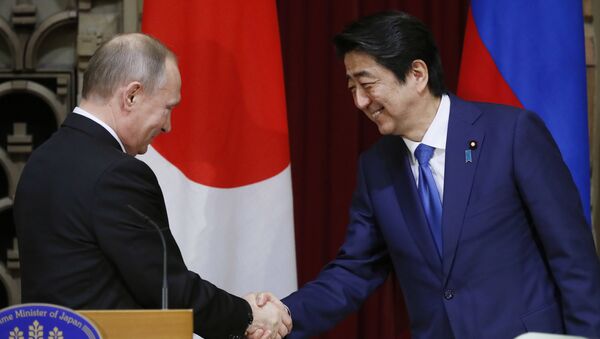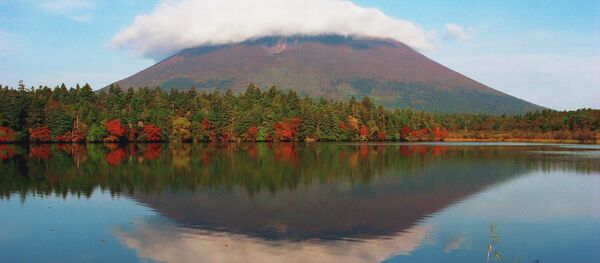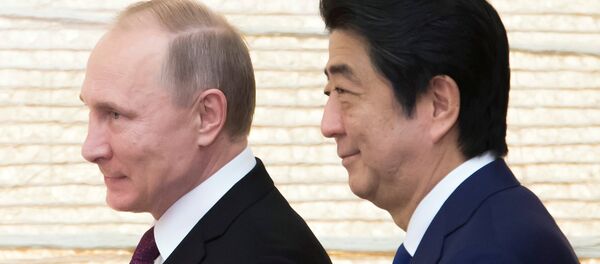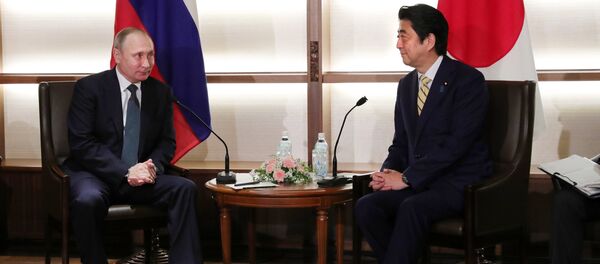Nevertheless, it is apparent that the governments led by Prime Minister Shinzo Abe as well as Japanese business elites are interested to reach a compromise and develop relations with Russia.
One the main reasons is that Tokyo still cannot understand what will be the policy of new United States President Donald Trump towards Japan and the entire Asian region, according to Anatoly Koshkin, a historian and specialist in Japanese studies.
"Trump’s calls to focus on America’s domestic challenges are a concern for Japan. He also said that Tokyo should intensify attempts to strengthen its security. Japan needs a sustainable balance of power. This is one of the driving forces behind Tokyo’s intention to improve relations with Russia," Koshkin said in an interview with Sputnik Japanese.
"Abe wants to restore Japan’s full-fledged sovereignty. Despite a strategic alliance with Washington, since 1945 Japan has been a geopolitical colony for the US. But Abe wants to make Japan a completely independent state. This is why Tokyo needs to normalize and develop relations with Moscow. Then, Japan will be able to play a more independent role in the triangle between the US-China-Russia," the expert pointed out.
The results of Vladimir Putin’s visit to Japan were skeptically received by the Japanese. A recent survey revealed that over 50 percent of respondents were disappointed by the results of talks between Putin and Abe.
Experts say that the reason is that expectations of Putin’s visit were over unrealistic. Many in Japan labeled the visit as "historic." Abe underscored that one the most important results of the talks was a statement on joint activity on the Kuril Islands.
"This visit was organized mainly by Abe’s closest allies from the economic and trade minister, and not by the foreign ministry. The majority of Japanese diplomats are pro-American. They want to complicate normalization between Moscow and Tokyo. Moreover, there are powerful nationalist groups interested in undermining Russian-Japanese dialogue," he explained.
At the same time, according to Koshkin, Japanese companies have a "pragmatic interest" for Russia.
"There is no economic collapse in Japan, but the Japanese economy has long been stagnating. So, Japanese companies are looking for new destinations for their capital. Currently, there is a small number of countries interested in Japanese investments in East Asia. The most promising destinations for Japanese companies are the poor-developed regions of Russia’s Far East and Siberia," the expert said.
Never miss a story again — sign up to our Telegram channel and we'll keep you up to speed!




